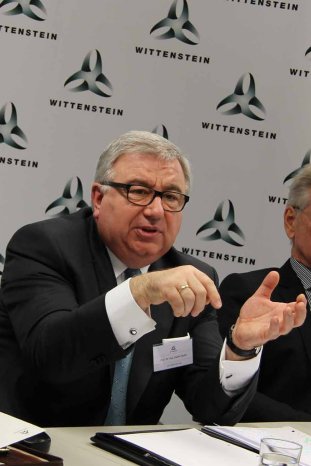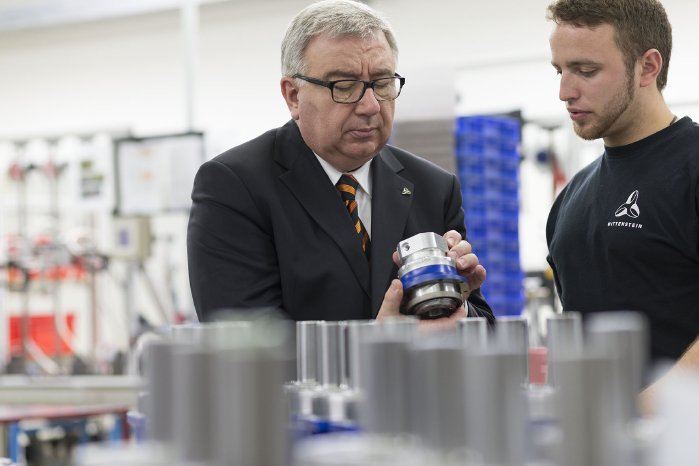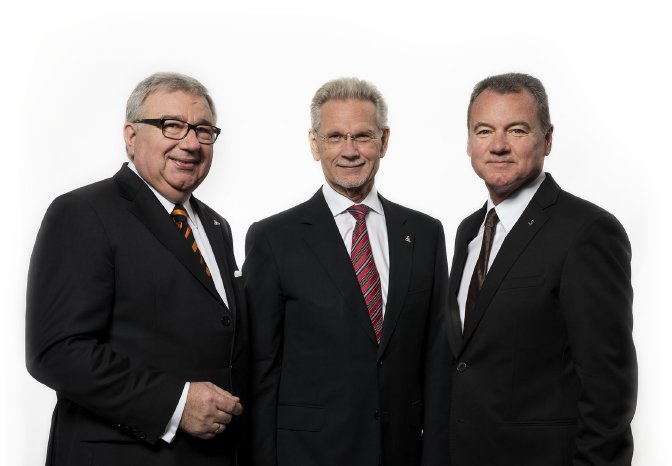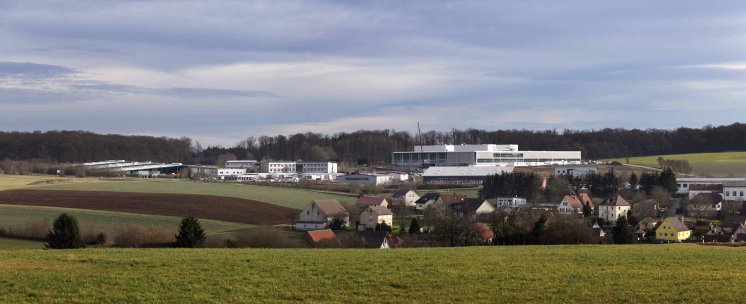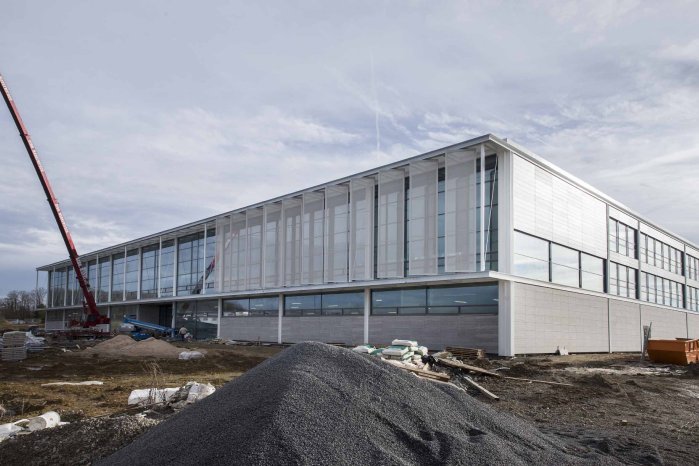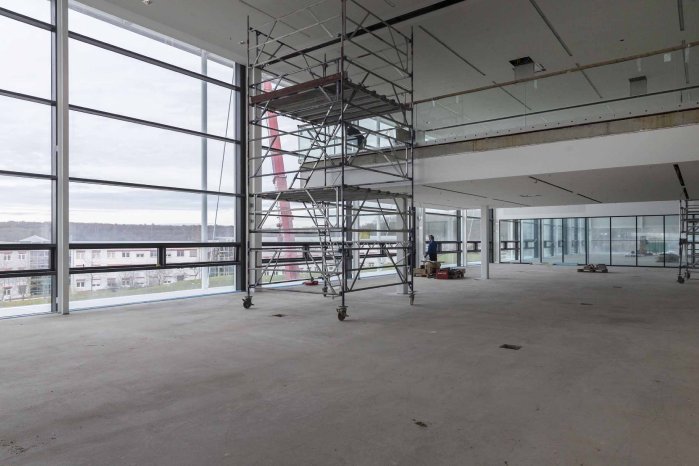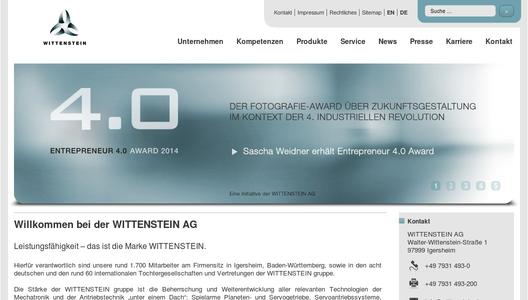The new building currently under construction at the WITTENSTEIN Headquarters in Igersheim-Harthausen underlines the company's clear future commitment to Germany as a manufacturing location as well as the unbroken pursuit of its growth and success strategy, which is founded on a tradition innovation - not only in the portfolio of drive products but also in production processes. According to Professor Spath, "WITTENSTEIN AG is in great demand as a recognized driver of Industry 4.0 in Germany - even though with its 1700 or so staff it can hardly be classed as a large corporation". He intends to utilize his longstanding experience and network ties in applied, industry-relevant research to thrust ahead with the technology shift from mechanical engineering to mechatronics. Software and electronics are two key aspects of the envisaged advances in drive technology. Spath - who studied Mechanical Engineering, specializing in manufacturing systems and production engineering, and can look back on significant successes in industry in addition to his impressive biography as a research scientist - is a staunch advocate of "tomorrow's smart production". It therefore comes as no surprise when he mentions the "Future Urban Production" facility, which opened just over a year ago at the Fellbach site a few miles from Stuttgart, in the same breath. This low-noise, low-emission manufacturing plant for gearing solutions, which is closely aligned to tomorrow's challenges as identified within the Industry 4.0 project - the "fourth stage of industrial development" - went up directly adjacent to a passive house estate. Spath is altogether aware of the big opportunities offered by Industry 4.0: "It's a trend that will open up new product worlds and business models - and WITTENSTEIN is no exception".
By his own admission, WITTENSTEIN's "new man" is currently mid-way through the stocktaking phase. During these first few months at the company he is concerned above all with understanding its market and competitive position from the point of view of the underlying technologies and opportunities for development. As part of the groundwork for his future strategic direction, Spath visited WITTENSTEIN's two main international production sites in the US and Romania in autumn 2013; he also took the time to form his own personal impression of the situation in Switzerland and Italy. He sees particular potential for global growth in the continued expansion of the Asian and American markets.
"Everywhere I've travelled so far, both at home and abroad, I've come across staff who are highly motivated; I don't think I've ever experienced such widespread openness and enthusiasm at any company before", he reports, still just as awed three months on. The strengthening and realignment of vocational and further training in-house at the WITTENSTEIN academy is a matter especially close to heart of the new President, who is a highly reputed occupational scientist. "We can only succeed in fostering talent and getting the best out of our staff if we adapt our programme of training and continuing professional development to the changing requirements of globalization, new technological challenges, novel business and production processes and demographic trends", Spath continues.
In the meantime, the new President - the candidate expressly favoured by his predecessor Dr. Manfred Wittenstein - is gradually addressing all of these tasks. The Management Board (a triumvirate which also includes Karl-Heinz Schwarz in addition to Spath and Wittenstein) will continue to operate with the present membership until the end of March, when the 2013/14 fiscal year finishes.
Following this transitional phase, Dr. Wittenstein will take over as Chairman of the WITTENSTEIN AG Supervisory Board as planned. Professor Spath feels very much at home in his new role: "It gives me great pleasure to fulfil a bridging function for the next generation at a family run firm like WITTENSTEIN".
